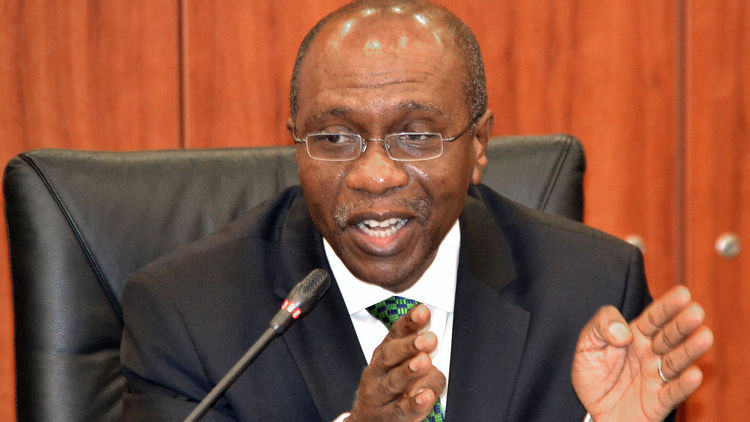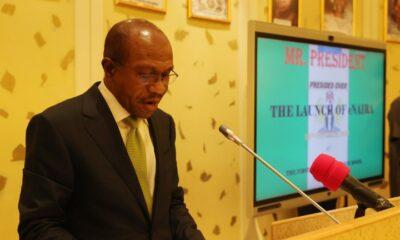The Central Bank Governor, Godwin Emefiele, has said that the country will save about $3 billion from petroleum products imports annually when Dangote Refinery is fully operational.
He said that latest records showed that petroleum products took about 25 percent of the country’s import.
Emefiele spoke when he paid a visit to inspect the Dangote Refinery and Petrochemical Company in Ibeju-Lekki, Lagos, on Friday. Some banks chief executives were also part of the visit.
During the visit, Dangote Fertilizer Limited disclosed the formal commencement of production of Urea in commercial quantity and the plan to hit the Nigerian market on Monday.
The CBN governor said the bank was introducing initiatives to support indigenous producers to stimulate local production and preserve foreign exchange in the country.
He added, “Imagine if this refinery comes to life, hopefully by the first quarter of next year, where we have propylene, polyethylene, granules and other by-products from petrochemicals, we will be saving about $3bn worth of import annually.
“For me, that is extremely gratifying. Don’t forget that I keep asking what is the contribution of import to our Gross Domestic Product?
“The contribution of import to GDP is negative and if we can reduce our import by about $3bn annually, imagine how our GDP will be growing.
“That is the science behind what we are doing. Reduce import and produce things that we can produce locally and consume them locally thereby promoting solid import substitution.”
Emefiele said that Nigeria had the potential to export at least 3.5 million metric tonnes of urea to different parts of the world.
He said, “Nigeria needs between one million metric to 1.5 million metric tonnes of Urea to meet the local demand. So, we have potentials to export at least three to four million metrics tonnes of Urea to different parts of the world.
“With this latest development, Nigeria has become one of the major producers of Urea in the world. This for me, is a story, which no one would have believed would happened in Nigeria.”
“Nigeria, now ranks among the leading countries in the production of Urea in the world. This, for me is a story that no one would have believed will happen in Nigeria.”
Emefiele said the commissioning of the petrochemical and refinery plant would kick off by the end of the first quarter of 2022.
Speaking on behalf of the bankers, the Group Managing Director of Access Bank Plc, Mr Herbert Wigwe, expressed joy for the support they gave to Dangote to create a world class manufacturing enterprise in Nigeria.
President, Dangote Group, Aliko Dangote, appreciated the Nigerian banks for believing in his dreams and supporting his initiatives.
He said, “This Phase 1 of the project, which is estimated to cost $2.5bn, is to manufacture 3mmtpa of urea per annum.
“This capacity will later be expanded to produce multi grades of fertilisers to meet soil, crop and climate specific requirements for the African continent.”

 Naira4 weeks ago
Naira4 weeks ago


 Naira4 weeks ago
Naira4 weeks ago




 Naira4 weeks ago
Naira4 weeks ago




 Naira3 weeks ago
Naira3 weeks ago


 News4 weeks ago
News4 weeks ago
 Travel4 weeks ago
Travel4 weeks ago




 Naira3 weeks ago
Naira3 weeks ago
 Naira3 weeks ago
Naira3 weeks ago



















